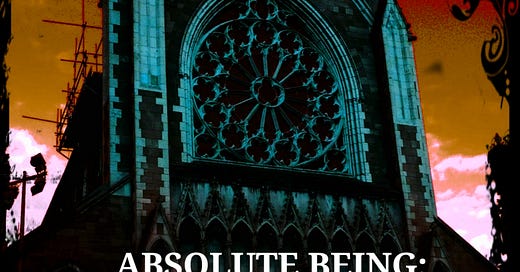Max Scheler (1874-1928) was a German philosopher, and upon his death Martin Heidegger acclaimed him as the most important force in philosophy (of the time). Honestly, I’d never even heard of the guy until directed to him by another last year. That was felicitous, as I find much of great value in Scheler (he's certainly lighter on the neologism-mongering than Heidegger!)
In his last work, the treatise “The Human Place in the Cosmos” Scheler masterfully dismantled both the assumptions of classical western philosophy with it’s exaltation to supreme power of the (broadly) ideal or spiritual as well as it’s mirror-image errors of pure vitalism and vulgar materialism.
Scheler’s view of existence is as a complex monism (one ‘Being’ with two aspects); impulsion and spirit. By impulsion he means the natural forces that pulse as the life and life giving groundswell of the universe. By spirit he means mind, rationality, intelligence and all those aspects of experience we usually bunch together as the psycho-spiritual (or just spiritual). His criticism of the classical western philosophical tradition is that it gave priority and even creative power to the intellectual/spiritual over the non-’spiritual’ aspect of Being. He sees this as a result of the class character of the (especially Greek) philosophers. They were more often than not high born men with the wealth and resources necessary for education and influential positions in public life. Therefore they valued (and wanted everyone to value) the realm of ideas and intellect as superior.
Leaving aside this class analysis (I'm not doubting it, but it's not what's important here) in Scheler's conception of the nature of existence, all power and potency arises with and from the matrix of unconscious forces, or impulsion. The spiritual/noetic aspect of Absolute Being (what he refers to as the Ground of Being) is relatively powerless, certainly with regards to creativity. What power the mind/spirit can exert is as a directing, choosing, or steering principle buoyed up on the generative force of impulsion. Scheler’s Absolute Being realises itself through mind/spirit (embodied as human beings) in a way analogous to a symphony being realised through the whole concatenation of elements that are involved in an orchestra’s performance.
In Buddhism too, the human condition is regarded as the best for awakening to and as reality. The great vortex of dependent origination can be viewed as something similar to Scheler’s impulsion, though Scheler regarded Buddhism as taking a purely negative approach to existence, whereas he saw the exercising of spirit as a positive value. Perhaps the Theravada tradition could be considered as taking an entirely negative view of existence (though I’m not a Theravadin, and cannot, and would not presume to speak for Theravadins) but there is room for positive, even creative appreciations of existence in the Mahayana. Either way, Scheler’s philosophy, in this his final work anyhow, shows strong resemblances to non-dualism which is central to Buddhism and an important strand of Vedantic theosophy.
I’ll finish with a visual representation. I like mental images, especially landscapes and atmospheric settings– as opposed to idols and emblems – as ways to appreciate philosophical or religious concepts.
Hope it may work for you too!
ABSOLUTE BEING AND BUDDHA; A SCHELER-BUDDHIST INTEGRATION
“A vast expanse of tidal marsh by the sea under a storm roiled sky. The air is heavy with the breath of living, pulsing with energy. A moment, a flash of brilliant lightning illumes the face of the Buddha encompassing sea, sky and land. This place is the beginningless universe of force and life, this entire scene is the Self which includes everything. The flash of lightning is the occasion of spiritual awareness, and the face of the Buddha is the mirror of the Self”



